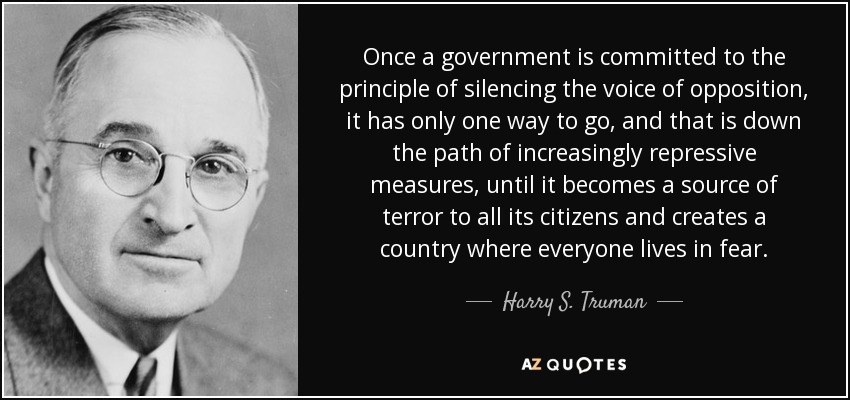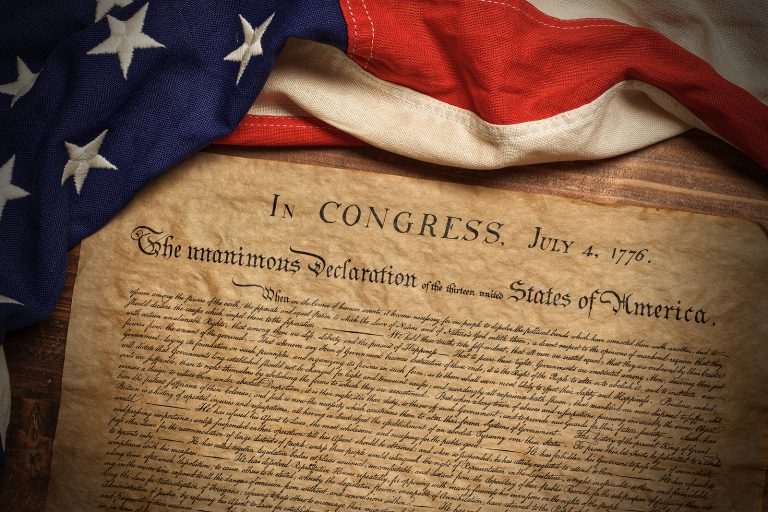How could such a fundamental, universally understood truth, which stood unquestioned for eons of time, be dismissed and replaced with confusing lies, that have in a short time become not only accepted as doctrine by so many, but also forced upon the rest of us? How did an ideology that runs counter to truth and contradicts itself gain such momentum? Why are so many otherwise intelligent and reasonable people not only accepting the lies, but defending them and vilifying those who dare speak the truth?
When I started blogging in 2015, one of the first things I wrote was titled “On Being a Woman”. It was a reaction to something in the news then. I confess that it violated a principle I adopted later to not call out specific people in my posts, but to focus more on principles. I was also very passionate in that piece and have tried to be more calm – less ranty – since. But I still stand by everything I said there. The truth is still the truth. Women are women – women can only be women – men are not and can not be women.
Biological Truth
This is Truth. It is a biological reality that men are men and women are women. Men have an X and a Y Chromosome which results in physical characteristics and male sexual organs, among other things. Women have two X Chromosomes which results in different physical characteristics and female sexual organs. These differences are imbedded in every cell in every body. They exist independent and regardless of any surgical removals or enhancements or hormonal treatments. The extremely rare biological anomalies are exceptions that really do prove the rule. Humans are sexually binary. These physical differences make it possible for us to reproduce and therefore perpetuate humankind on this planet. That is the biological explanation.
Spiritual Truth
The spiritual explanation is that we have a God who is all knowing, all wise, all powerful, and all loving. In His love for us and his desire for our progression and happiness, He created physical bodies for us to learn and experience this physical world He created for that purpose.
God created man in his own image, in the image of God created he him; male and female created he them.
Genesis 1:27
In 1995 the living Apostles of Jesus Christ issued a Proclamation to the World which states:
Gender is an essential characteristic of individual premortal, mortal, and eternal identity and purpose.
This affirmed that gender is an eternal element of our identity. In plain words, we existed as spirits before we came here to gain a physical body and our spirits were already either male or female. Our spirits entered into physical bodies corresponding to our identity – God created them male and female. When we leave this world we will still be either male or female as we were in the beginning.
Of course, among men, and also among women, there is great physical variety – sizes, shapes, colors, etc. There is also great variety in personality, abilities, aptitudes, interests, etc. But there are those core characteristics that differentiate two very distinct sexes.
Ideology Rather than Individuals
Before the accusations that my words are hurtful, and lectures about “isn’t it more important to be accepting”, I would like to separate out individual human beings from the ideology. Yes, I care about people – very much. Yet, it is the very people that some would accuse me and others of offending, oppressing, or victimizing, who are actually being used and harmed by the ideology, and will be tossed aside when their usefulness to the cause has run it’s course.
Progression Downward
I wrote another blog post in December 2018, but never posted it. By this time, the transgender movement had advanced from a few prominent people bringing attention to it, to becoming more accepted and widespread and influential. I wondered then whether this focus and promotion of transgenderism would be the downfall of the whole liberal movement.
This was my question then: Are liberals really oblivious to the contradictions, conflicts and actual undermining of liberal causes by this focus on the T in the ever growing acronym LGBTQIAXYZ+? How could a movement at odds with itself – essentially with components cancelling out each other – continue?
But continue it did and somehow the T has become supreme. Transgenderism presents the optimum as far as oppression points (especially when combined with racial minority). It has become more in our faces. It is forcing changes to our whole social environment and is affecting the liberty of Americans.
A wise man posed a very good question:
The idea that anyone, even children, can snap their fingers and become the opposite sex is, objectively, crazier than fretting over nuclear war, and much crazier than anticipating the impending arrival of aliens. And yet, for most of the past decade or so, transgenderism somehow only grew more influential, and corrupted more institutions, the more unhinged it became. How could that be?
Matt Walsh The Trans Ideology Cult Is Collapsing Under The Weight Of Its Own Absurdity, Daily Wire 8/16/23
Destroying Feminism
First, I might point out that this whole LGBTQ+ package is part of a larger liberal package, which supposedly includes feminism.
I remember the beginnings of Women’s Lib in the 1960’s and 1970’s. There was bra burning and tossing of dresses for pantsuits. Clothing with gender specific meaning – especially somehow associated with being dominated, sexualized, or objectified – was thrown out. Yet, preferences for that demeaning feminine attire is exactly what men who now want to be women want to wear. But women aren’t supposed to want that if they want to be equal to men. So, we have men wearing dresses while women wear pants. Maybe we just need to switch the stereotypes and clothing departments?
Women fought for the right of girls to participate in sports. It was a badge of equality. I remember as a girl playing softball with boys in the field behind our house. I couldn’t play little league with boys and there were no girl leagues. What an advancement to have sports programs for girls, where they can compete against other girls on equal ground. But now we have full grown men who call themselves women so they compete against and dominate much smaller women. How does this advance the cause of women’s equality if men take over women’s sports?
Then there is that glass ceiling. Will it finally be broken by men who think they are women or by women who think they are men? Throw in enough of either or both and it could skew the numbers. How would we then know if women have arrived? How can a woman even be a proper feminist these days if a man can be one too?
Offensive Cultural Appropriation
Drag shows are becoming more popular recently and are now being presented as “family friendly”. I am still confused about drag queens. We used to call them transvestites. It is kind of a sexual fetish, so are they just deviants? Are they gay? They used to be thought of as gay. Are they transgender? How many have actually transitioned or do they really want to? Is this simply a temporary transformation for entertainment and attention?
Drag shows are essentially the same in nature to performers in Blackface. People are outraged and very offended at even the idea of Blackface these days. Individuals have been cancelled when very old photos have shown up. I, as a woman, am very offended at the idea of a bunch of full-grown men parading around in stereotypical slutty clothing most women don’t wear and thus mocking women and womanhood. I am all for comedy, but political correctness today makes it hard for comedians to mock many really funny truths. But somehow mocking women in this way is celebrated.
Gay vs Transgender
For years we have heard the mantra from gays – “we were born that way”. Same sex attraction was declared to be something that no one had any control over. It is just the way they are. No choice involved. I have heard many accounts of gays and lesbians who related that from early childhood that they knew they were gay and cited a connection with things associated with the other gender as evidence that this was inherent: girls who hated dresses and pretty things and like to play sports and do rough stuff; boys who did like girly stuff and drama and were un-athletic and nurturing. Stereotypes? Yes!
Now those who promote transgenderism, convincing vulnerable young men and women that they are the other gender, use those very same stereotypical preferences as evidence that they are really the opposite gender. Then they influence them to make irreversible changes to their bodies to fit their “real gender.” This involves a choice (though not fully understood by children) to change what already is.
If we are born with specific chromosomes, doesn’t it involve a conscious choice to change one’s gender? So, we are supposedly born with sexual orientation before we are sexual, yet can choose to change our gender based on how we feel? Is it about choice or how we are wired? I am confused – and I think they are too. And I wonder why gays are not upset at this undermining of their “born that way” argument?
How did this happen?
Now transgenderism is appearing to be an epidemic among young people. It has become the flash point for political and cultural debate. It is the issue upon which many lives are being forever altered – both among those transitioning and for those who dare to speak out against it.
How did something so blatantly untrue and counter to other liberal ideas, become the central focus of the whole movement?
I know that truth is consistent with truth. But lies are varied and can and often do conflict and contradict each other. Knowing the source of lies – the father of lies – this makes some sense. He doesn’t care whether his lies are consistent. His intent is to keep us from The Truth, in whatever way he can. If some will believe and support one lie – great for him. If others discount that lie or promote another – that is great too. Somehow, he has managed to create a coalition of lies with the real purpose being to unitedly fight against truth. Silly me to think the lies might actually fight against and undermine each other.
Yet, I wonder what has happened to people’s brains. Do people really believe that now after all these centuries of human life being perpetuated by two distinct sexes, we have now advanced to multiple genders that actually cannot perpetuate human life? Are people so devoted and faithful to the liberal cause that they blindly accept the whole package without question? Is it all about power – social and political? Certainly, there is money to be made in promoting expensive hormone treatments and surgeries. Or is it all evidence of the influence of the adversary in this fallen world?


